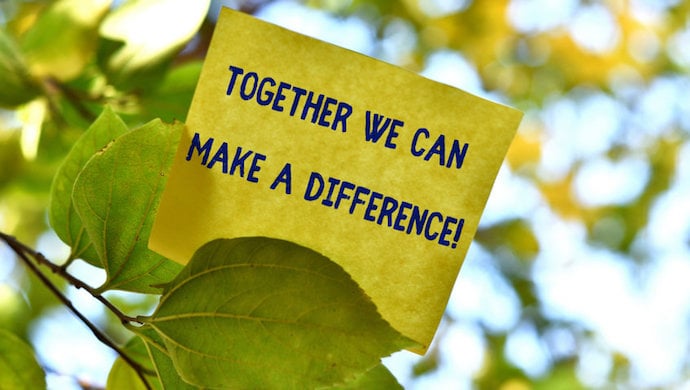
It’s more important than ever for brands to be socially responsible. Consumers are keeping a close eye on what businesses are doing to give back to the community and support employees throughout the pandemic. And, they aren’t afraid to call out businesses on social media if they feel they’re not doing enough to give back.
As a result, social media is booming as we continue to wrangle the challenges facing us as a society. Consumers are increasingly using their hard earned cash to vote for the future they want to live in. The majority of Singaporeans agree that they are more likely to purchase from brands with a strong social conscience.
Here, we examine best practice and guidelines for brands looking to publicly communicate their social conscience.
Support through legitimate effort
Consumers want businesses to address the social injustices confronting our world, including equality and climate change. Although, at the same time, consumers are sceptical about ‘woke washing’ where businesses are leveraging these issues as marketing stunts, rather than genuine acts of activism and solidarity.
Consequently, brands are being denounced for inauthentic effort. In the case of Singapore’s Pride Season, IndigNation, which is celebrated nationally in August each year, many brands have been criticised for ‘rainbow washing’ where they used the rainbow colours or flag, but do not undertake any tangible work to support the LGBTQIA+ community.
For brands seeking to demonstrate their social conscience, it’s imperative to consider what value they’re adding and what the desired outcome is. Corporate allies and advocates have an important role in society and can champion meaningful change, however, it must feel credible to consumers and the public.
This can be achieved through brand storytelling, with leaders revealing why they are so passionate about the cause and the brand’s journey to relevant efforts of activism.
Reflecting on IndigNation as an example, brands could look to showcase stories from the LGBTQIA+ community, use their money and platform to address real issues or be educated on the issues faced by the community.
Also Read: How these four India-based startups are impacting the earth
Align social conscience with brand values
Before commenting on social justice issues, businesses should ensure they have a clear track record of actively supporting the cause.
During last year’s global Black Lives Matter (BLM) movement, Ben & Jerry’s rallied against racial inequality and were vocal advocates. With decades of experience in campaigning for a range of social justice issues, such as refugee and human rights, climate change and gender equality, Ben & Jerry’s published one of the strongest public statements regarding the #BLM movement.
The brand went so far as to claim that police brutality “is perpetuated by a culture of white supremacy”. Validating this with real action, Ben & Jerry’s published on its website a list with actionable steps to demolish white supremacy as an open source for other businesses and leaders to lean on.
Corporate activism must be bolstered by a brand’s values in order to feel authentic. In this case, Ben & Jerry’s has a robust history of educating employees and consumers about structural racism and inequality, is focused on diversifying the recruitment process and has created foundations to support important social causes.
As a result, Ben & Jerry’s is a superb example of a business that’s corporate activism is intrinsically matched with its brand values.
Reinforce with real action
In order to comment on social justice movements, brands must display real action to address the challenges and champion change.
For example, Bettr Barista believes that coffee can taste good and do good for society too. The brand is committed to changing and improving the lives of marginalised women and youth at risk.
Bettr Barista holds specialty barista classes and over 1,200 professional coffee courses for those looking to upskill. All proceeds go to supporting higher education for youth and communities in need.
This is an enthralling example of a brand putting its money where its mouth is, while using its platform to champion socially responsible practices and have a positive, far-reaching impact that serves a greater purpose.
It’s more important than ever before for brands to be socially engaged. In an era where customers hold all the power, brands are being summoned to remain relevant by demonstrating their commitment to a better future. This means being aligned with consumer ideals and important social justice movements.
There’s generally a fine line between brands doing the ‘right’ thing and being labelled opportunistic. With this in mind, it’s vital to thoughtfully consider what value can be added to the movement and whether their social conscience is in tune with a brand’s actions.
Brands should be looking to get behind the movements that are important to customers. And if unsure what these are, the best way to find out is to simply ask.
–
Editor’s note: e27 aims to foster thought leadership by publishing views from the community. Share your opinion by submitting an article, video, podcast or infographic
Join our e27 Telegram group, FB community or like the e27 Facebook page
Image credit: artursz
The post The business of social responsibility: Why brands are redefining their social conscience appeared first on e27.

